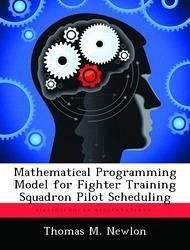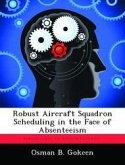The United States Air Force fighter training squadrons build weekly schedules using a long and tedious process. Very little of this process is automated and optimality of any kind is nearly impossible. Schedules are built to a feasible condition only to be changed with consideration of Wing level requirements. Weekly flying schedules are restricted by requirements for crew rest, days since a pilot's last sortie, sorties in the last 30 days, and sorties in the last 90 days. By providing a scheduling model to the pilot charged with creating the schedule, valuable pilot hours could be spent in the cockpit, simulator, or other required duty. This research effort presents a mathematical programming (MP) approach to the fighter squadron pilot training scheduling problem. The methodology presented is based on binary variables that will provide integer solutions to every feasible set of inputs. A simulator heuristic developed specifically for this problem assigns pilots to simulator sorties based on the feasible solutions obtained from two different formulation and solving approaches. One approach assigns training mission sorties and duties for the entire week, while the other approach breaks the week into ten successive sub-problems. The model constructs two feasible schedules in approximately 2.5 minutes.
Hinweis: Dieser Artikel kann nur an eine deutsche Lieferadresse ausgeliefert werden.
Hinweis: Dieser Artikel kann nur an eine deutsche Lieferadresse ausgeliefert werden.








